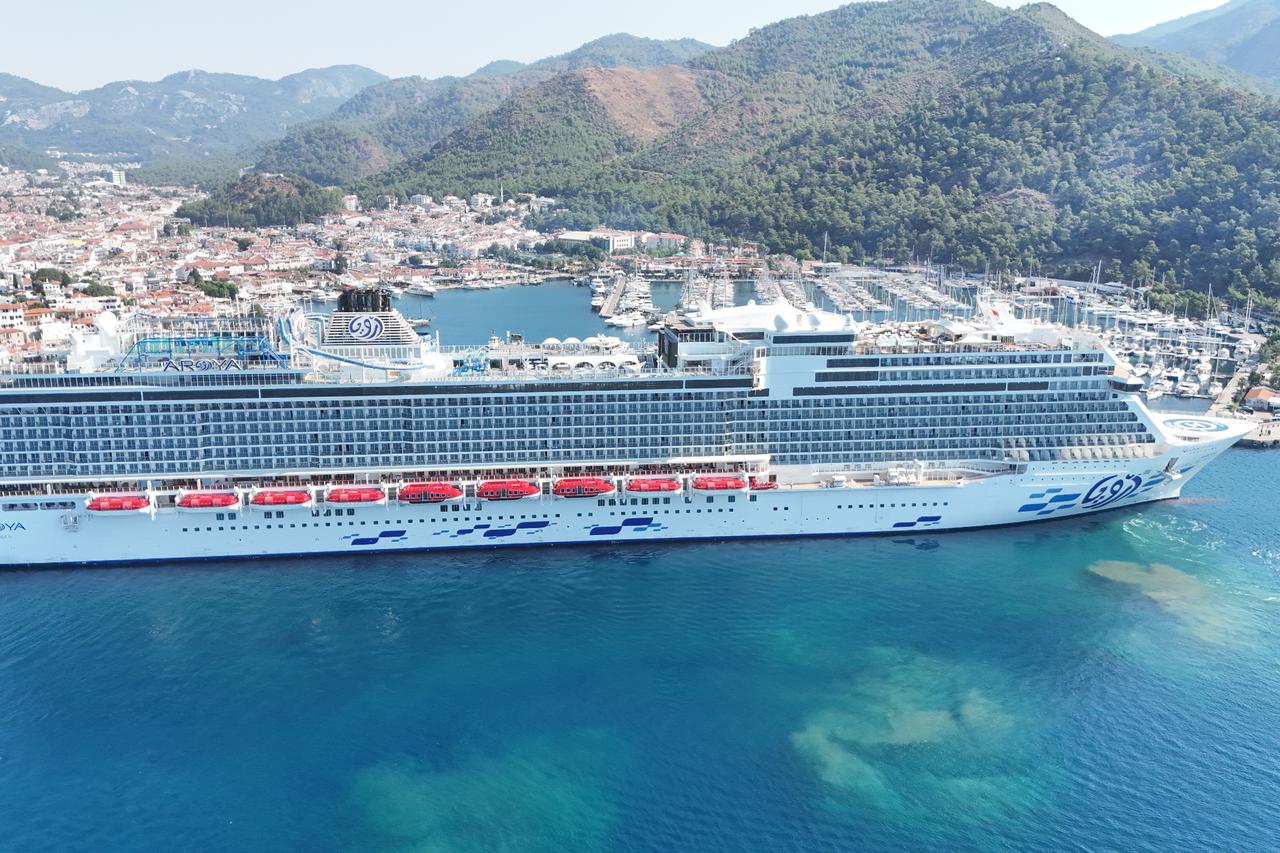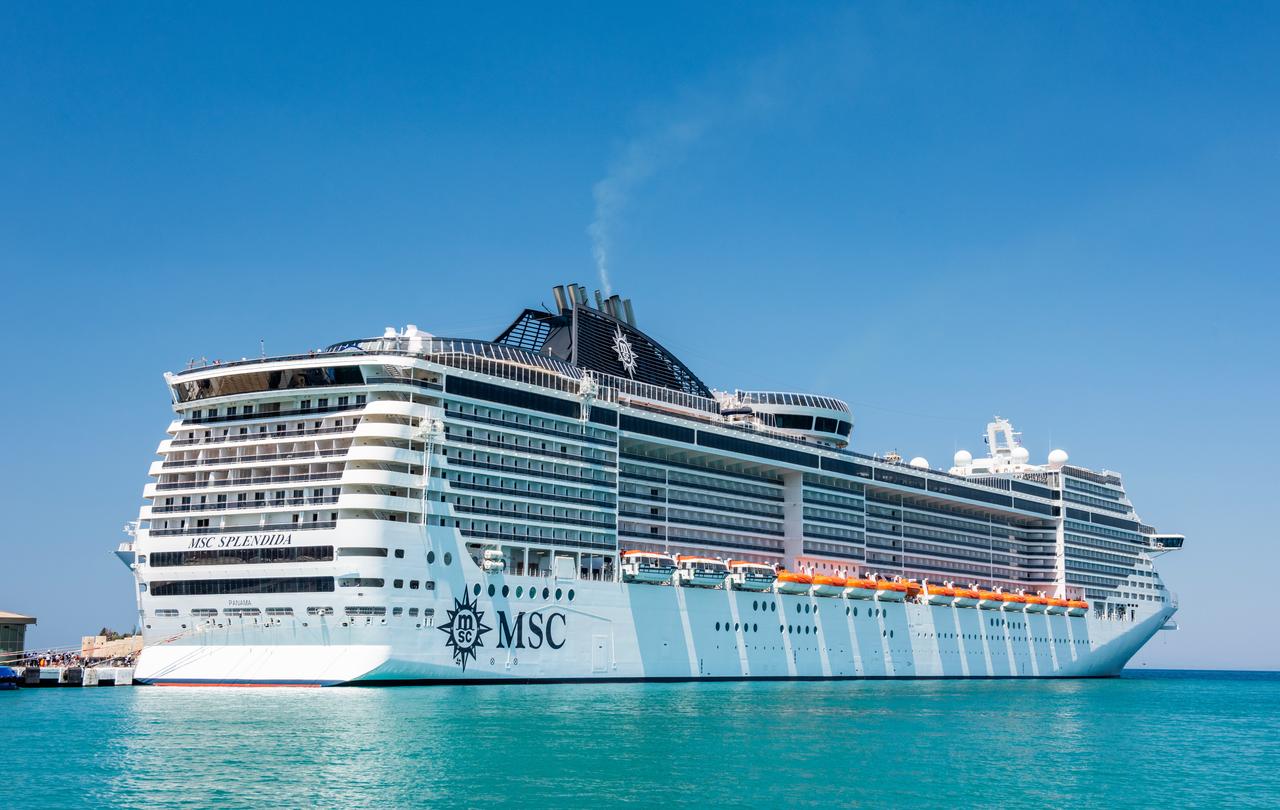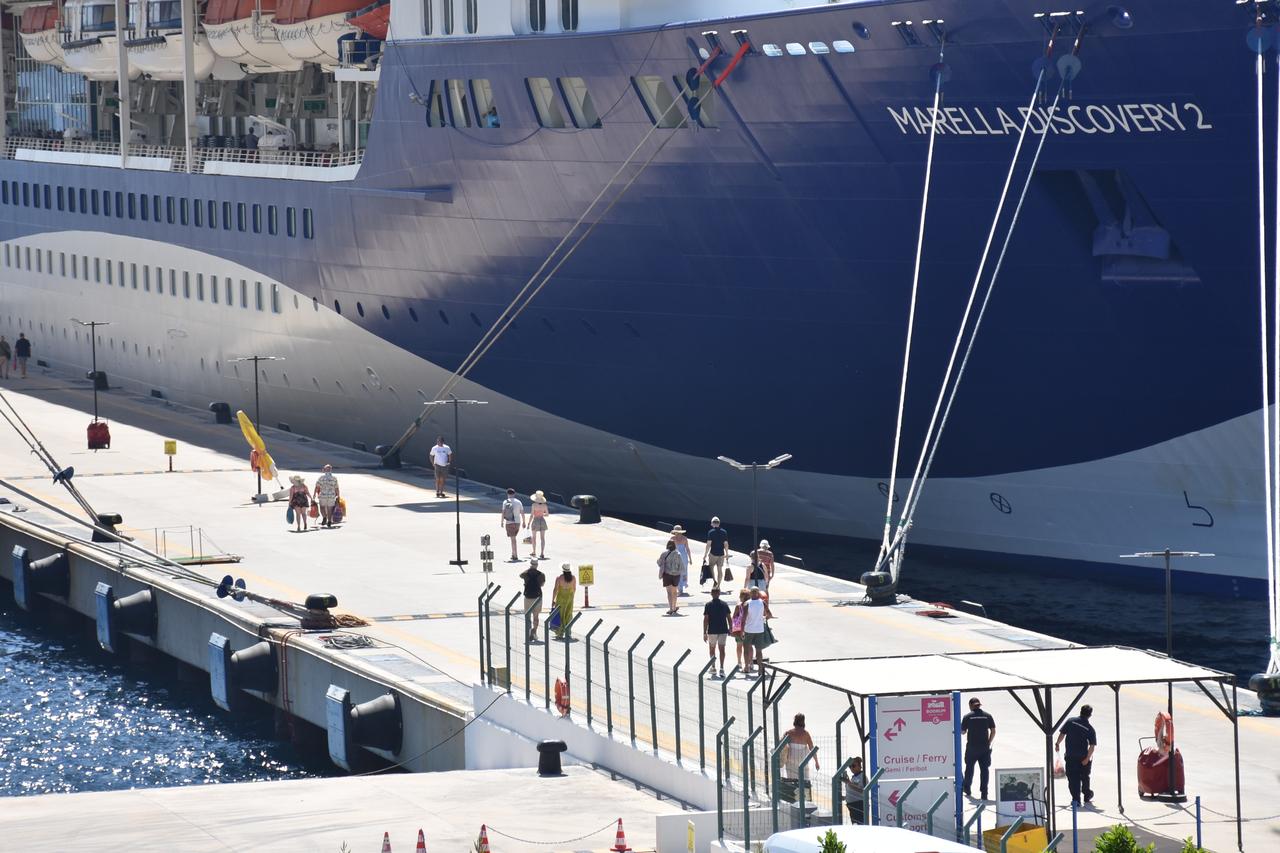
Turkish ports hosted 490 cruise ships in the first half of 2025, up 18.07% year-on-year, with the southwestern Port of Kusadasi in Aydin receiving the most traffic at 227 vessels, according to Transport and Infrastructure Minister Abdulkadir Uraloglu.
The renowned sea tourism destination of Türkiye, Kusadasi, hosted 339,922 of the country’s total 732,302 cruise passengers.
Located on Türkiye’s Aegean coast, Kusadasi is one of the country’s leading cruise destinations, known for its close proximity to ancient sites like Ephesus and its well-developed port infrastructure. The town has long served as a gateway for international tourists seeking a blend of history, culture, and coastal leisure.
Kusadasi’s cruise port is among the busiest in the Eastern Mediterranean, regularly attracting large vessels from major cruise lines. In addition to its historical appeal, the town offers a wide range of restaurants, shops, and beaches, making it a popular stopover for both day-trippers and extended stays.

In June alone, 173 cruise ships called at Turkish ports, up 14.56% from the previous year. Monthly passenger traffic reached 293,766, reflecting a 20.61% annual increase.
In popular destinations, Kusadasi was followed by Istanbul with 96 ships and 220,720 passengers, and Mugla's Bodrum with 29 ships and 31,761 passengers.
Other ports contributing to cruise traffic included Cesme (24 ships, 11,183 passengers) and Canakkale (15 ships). Smaller-scale arrivals were recorded at Fethiye, Gocek, and Sinop, each welcoming one cruise ship. In total, ports outside the main destinations handled 99 ships and 119,743 passengers.

Minister Uraloglu said Türkiye is increasingly becoming a global tourism hub, as international passengers continue to choose the country for its historical landmarks, cultural heritage, and natural attractions.
He emphasized that investments in cruise tourism are progressing in parallel with broader improvements across all modes of transportation.
Uraloglu projected that the total number of cruise passengers will surpass 2 million by the end of 2025, citing strong demand and continued infrastructure development across Turkish ports.